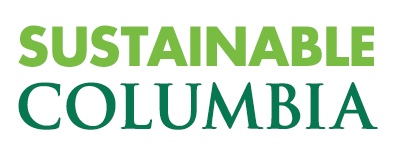Plan 2030: Pathway to Decarbonize Columbia University's Campuses
On Thursday, September 23, a panel of Columbia faculty, staff and student representatives discussed the University's ten-year sustainability plan – Plan 2030 – and goal to achieve net-zero emissions by 2050. The virtual event included an overview of the plan and discussion about activity underway, noting the role that students and faculty play in meeting the University's goals. The event was coordinated as part of Columbia’s partnership in Climate Week.
The focus of the panel discussion centered around Columbia’s “whole University approach” and the bold action needed to confront the climate crisis.
Jessica Prata, Assistant Vice President, Office of Sustainability, began the event by recapping Columbia University’s Plan 2030, including how the Columbia-specific targets were developed within the plan’s commitment areas. The commitment areas include Campus Energy – to electrify campus and pursue zero emission electricity; Sustainable Transportation – to reduce emissions from on-campus travel; Responsible Materials Management – to send zero waste to landfills, as well as host sustainable events and practice sustainable retail and procurement; Campus Culture – to use campus as a living lab; Responsible Design and Construction – to set policy and requirements for design and construction; and Water Conservation – to enable conservation, capture and awareness.
The panel was moderated by Daniel Zarrilli, the University Special Advisor for Climate and Sustainability. To start, Zarrilli emphasized the relationship between Plan 2030 and the Columbia Climate School to advance climate research and drive solutions.
Professor Jason Smerdon of the Earth Institute explained the significance of the science-based targets used in the plan, which he noted are not just a commitment to reduction but a measurable commitment to action.
Jeet Viswanathan, Director of Energy Management and Sustainability at Columbia University Irving Medical Center (CUIMC), talked about operational steps being taken every day, in addition to system-wide changes that together will drive the University towards its targets.
Columbia College student Isabelle Seckler reflected on the energy and opportunities created by the plan and noted the ways students can connect and get involved. Seckler remarked that this is a unique moment at Columbia to “turn sustainability literacy into action.”
Watch the full discussion here:
